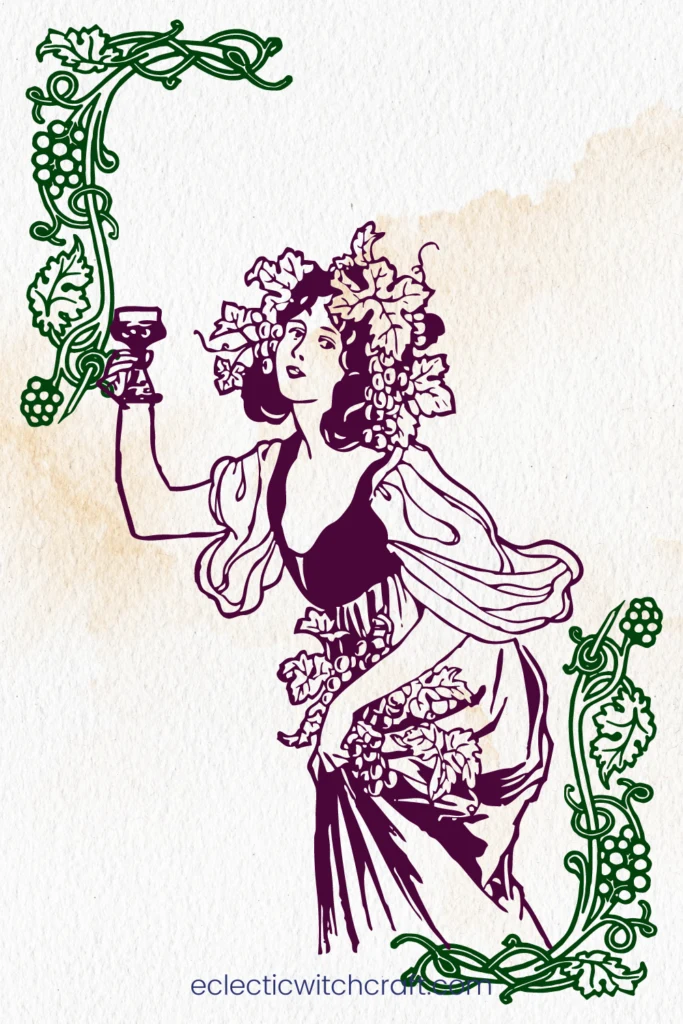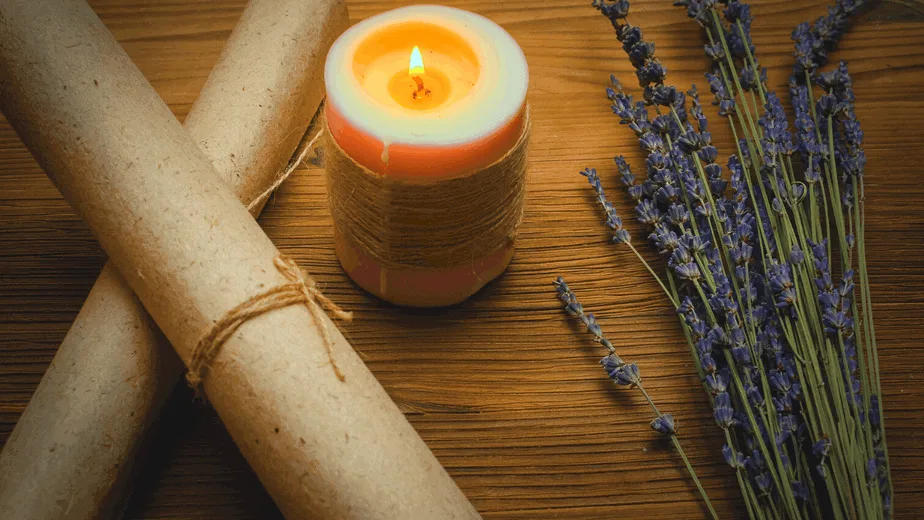Please note that posts on this site may contain affiliate links
Dionysus Offerings: Dionysus, the Greek god of wine and revelry, was a deity of great complexity and depth, far exceeding the image of a mere “party god.” Known for bringing holy ecstasy to his followers, Dionysus was also capable of cruel revenge against those who opposed him.
Associated with rebirth, fertility, and abandon, he shaped religious practices across the Mediterranean world until the dawn of Christianity. As a god whose role forged a crucial link between humanity and the divine, Dionysus drew men and women out of themselves through the intoxication of his rites.
In this blog post, we will explore the various offerings that can be made to Dionysus, including herbs, crystals, and more. We will delve into the significance of these offerings and their connection to the god’s attributes and myths.
Offerings to Dionysus
When it comes to making offerings to Dionysus, there is a wide range of options to consider. Known for his connection to wine and ecstatic celebrations, it is no surprise that offerings of wine, especially red wine, are highly favored. Other common offerings to Dionysus include meat, fruit, cakes, honey, incense, spices, and even poetry or songs. Blood, or liquids resembling blood, may also be offered as part of ritual practices dedicated to the god.
Dionysus was a god associated with theater, and as such, performances of dance or dramatic enactments can be made in his honor. The god’s association with fertility, fruitfulness, and abundance means that offerings of fresh fruits, particularly grapes, are also appropriate. In addition to these offerings, practitioners may seek to connect with Dionysus through ecstatic experiences, such as dance or trance work, as a form of offering to the god.

Herbs Associated with Dionysus
Herbs hold a special place in the worship and rituals of Dionysus, and a variety of herbs are associated with the god. Many of these herbs are believed to enhance the ecstatic and intoxicating qualities of Dionysus’ worship. For example, ivy is a plant closely associated with the god, and it is often used in wreaths or garlands worn by his followers during celebrations. Ivy’s winding and climbing nature is symbolic of the god’s ability to draw individuals out of themselves and into ecstatic states.
Other herbs that may be associated with Dionysus include mint, which is known for its refreshing and invigorating properties, and fennel, which has a long history of use in ritual and magic. The fragrant herb thyme is also connected to Dionysus and is said to enhance spiritual awareness and connection to the divine.
Crystals and Stones for Dionysus
When it comes to crystals and stones, there are several options that can be used to connect with the energy of Dionysus. Amethyst, a purple gemstone, is often associated with the god due to its connection to wine and spiritual transformation. Amethyst is believed to enhance intuition and spiritual connection, making it an ideal stone for those seeking to connect with Dionysus on a deeper level.
Garnet, a deep red gemstone, is also associated with Dionysus and is said to enhance passion, creativity, and vitality. This stone’s rich color evokes the wine that is central to Dionysus’ worship, and its energizing properties make it an ideal stone for use in rituals and celebrations dedicated to the god.
Carnelian, another red-hued stone, is believed to enhance courage, motivation, and self-expression. It is often used in rituals that involve dance, movement, or creative expression, making it an excellent choice for those seeking to connect with the dynamic and ecstatic aspects of Dionysus’ worship.
The Ecstasy and Rebirth of Dionysus Worship
The worship of Dionysus is characterized by the pursuit of ecstasy and a sense of rebirth. Dionysus’ followers, known as maenads or bacchants, would often participate in wild and frenzied rituals that involved dancing, singing, and the consumption of wine. Through these ecstatic experiences, individuals were able to transcend their everyday consciousness and connect with the divine.
Dionysus was also associated with the concept of rebirth, both in a literal and symbolic sense. In mythology, he is known as the “twice-born god,” as he was born first from his mortal mother Semele and then reborn from the thigh of his father, Zeus. This theme of rebirth is also present in the seasonal cycles of the vine, which dies back in winter and is reborn in spring, producing grapes that are transformed into wine.
For modern practitioners, the worship of Dionysus can involve the pursuit of ecstatic experiences as a means of connecting with the divine and experiencing a sense of renewal and rebirth. This can be achieved through rituals, meditation, dance, and other practices that promote an altered state of consciousness.
The Role of Dionysus in Theater and the Arts
Dionysus’ association with theater and the arts is an integral aspect of his worship. As the god of theater, Dionysus was honored with festivals and dramatic performances in ancient Greece. These performances often featured themes related to the god’s myths and attributes, such as the transformational power of wine, the tension between civilization and nature, and the duality of ecstasy and madness.
Theater, in the context of Dionysus’ worship, was more than just entertainment; it was a sacred and ritualistic practice that allowed participants to explore deep psychological and spiritual themes. Through the medium of theater, individuals could engage with the complexities of human experience, grappling with questions of identity, desire, and the boundaries of the self.
In contemporary practice, the arts continue to play an important role in the worship of Dionysus. Creative expression, whether through dance, music, painting, or writing, can be a means of honoring the god and exploring the ecstatic and transformative aspects of his worship.

Conclusion
Dionysus, the Greek god of wine and revelry, is a multifaceted deity whose worship encompasses themes of ecstasy, rebirth, and creative expression. Offerings to Dionysus can take many forms, from wine and herbs to crystals and artistic performances. By exploring the rich and diverse aspects of Dionysus’ worship, practitioners can cultivate a deeper connection to the divine and experience the transformative power of ecstasy and renewal.
In the end, the worship of Dionysus is a celebration of life’s paradoxes and mysteries—a reminder that within the intoxicating dance of existence, there is room for both joy and sorrow, liberation and constraint, and the eternal cycle of death and rebirth.

